The UN’s Recovery Through Independence, Canceling of Vetoes, By Zuhair Al-Harthi, Asharq Al-Awsat
It is no secret that the United Nations has become powerless and is no more than isolated islands in a vicious circle, as evidenced by those who have dealt with it stress that their faith in it has been shaken for quite some time.
Whenever a new setback strikes the international organization, voices are immediately raised. With every failed attempt at resolving issues in the Security Council, calls for the need to change the organization, which is now over seventy years old, are renewed.
Reform is a new-old demand that has been made after and during the Cold War; nonetheless, the UN used to play a prominent role regarding two global issues at the time: ending colonialism and development. However, its working-framework crisis persists. Circumstances, events and the delicacy of the phase the world is currently undergoing have given momentum to the calls for deep reform of the core of its mode of operation and heightened interest in these calls.
Secretary-General Antonio Guterres, who had been the prime minister of Portugal before becoming High Commissioner for Refugees at the United Nations in 2005, has become, as the current Portuguese president has said, “a respected voice that the world listens to.”
His personality and experience obviously help him do his job. Yet, he has not been able to find solutions to the world’s problems because the international institution is nothing more than the sum of states’ volitions.
To be fair, the United Nations Secretary-General is an employee at the end of the day, and he is not expected to achieve what goes beyond his capacities and prerogatives. Indeed, he cannot change the compass’s direction since he does not have the tools to pressure the powerful and influential states. But he can submit initiatives and proposals, create a climate and atmosphere conducive for dialogue and negotiation, set priorities and focus on the most pressing issues the world is suffering from, like poverty and human rights issues and refugee crises.
Everyone was hoping that the UN would restore its previous status as an international organization that expresses its positions clearly, credibly and independently and that it would go back to standing by the truth without yielding to dictates. Its failures have come in succession, especially in dealing with controversial issues such as the North Korean crisis, Iran’s nuclear program, India’s disputes with Pakistan, China’s rivalry with Taiwan, the Palestinian and Sudanese questions, the South American crises, and finally the events in Syria, Yemen and Libya.
It should have taken the criticism seriously and pushed for resolving the debates that start-off from an administrative and organizational restructuring of its agencies. The most prominent example of the issues that need resolving is veto power. It contradicts provisions explicitly stipulated by the United Nations Charter, which unequivocally endorses the principle of equality between members, not to mention the veto’s nullification of several Security Council resolutions.
We know that the secretary-general’s role in this regard is striking a balance between agencies. Today’s tangible reality is that the Security Council’s role is growing at the expense of the General Assembly and the International Court of Justice.
The out-dated organization also suffers from a series of financial, executive and administrative obstacles that have rendered it incapable of keeping up with the changing international order. This incapacity stems from its bloated and inefficient administrative apparatus and the scarcity of its financial resources.
The UN’s ability to ensure collective security hinges on the whims of the Security Council’s permanent members, that have been using it as a tool for conflict, as demonstrated by the massacres and destruction we have seen in Syria, which had been overseen and perpetrated by Council members. That is to say that the Security Council’s foundational rules, those that determine its framework, lack clarity. They have thus become the subject of contradictory explanations shaped by each state’s interests.
The climate of rhetorical attacks, accusations and quarrels between Moscow and Washington undoubtedly undermines international cooperation, and China’s emergence on the scene has further exacerbated matters. This state of affairs has been pushing us in the direction of the tragic situation we find ourselves in, one which threatens to undermine states, generate chaos, and shatter the international-system contract.
The events in Syria and Yemen and the farce in Libya came to glaringly expose the deficiency, incompetence, and disorder that the UN suffers from. Despite clear decisions consistent with international agreements and international law principles, the UN did not address the region’s crises, particularly through its envoys, a failing that calls for a revision of its operational frameworks.
No changes are on the horizon, especially after the four preceding decades of US hegemony, during which it was primarily responsible for the entrenchment of realpolitik and the idea that might is right. Still, there are signs of attempts at rebalancing international policies and relations, though they have yet to mature. Recent circumstances and events and the delicate phase the world is passing through have indeed created substantial momentum that should be channeled into major powers’ agreements and arrangements. This should be done in a manner that pushes in the direction of reframing the international organization, reforming it, restoring its status and bringing an end to the delusions at its heart, thereby giving it a chance to succeed at achieving its mission.
The secretary-general is not expected to pressure UN member states to solve all the crises; he doesn’t have a magic wand. But can save its reputation by making it more consistent with the novel developments the world has been witnessing as well as the principles of impartiality, professionalism and honesty, and he can refrain from yielding to pressure and blackmail.
Latest News
-
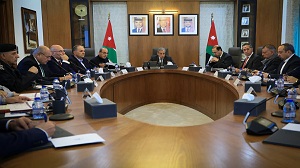 Defective used gas Heaters behind recent suffocation deaths — probe
Defective used gas Heaters behind recent suffocation deaths — probe
-
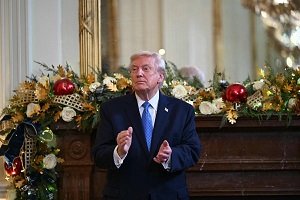 Trump imposes full travel bans on seven more countries, Palestinians
Trump imposes full travel bans on seven more countries, Palestinians
-
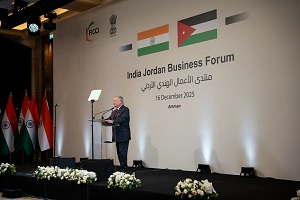 King, India PM attend opening session of India-Jordan Business Forum
King, India PM attend opening session of India-Jordan Business Forum
-
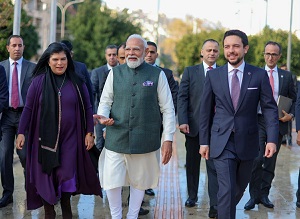 Crown Prince accompanies India PM on visit to Jordan Museum
Crown Prince accompanies India PM on visit to Jordan Museum
-
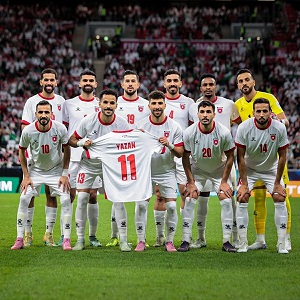 Jordan beat Saudi Arabia to reach Arab Cup final
Jordan beat Saudi Arabia to reach Arab Cup final